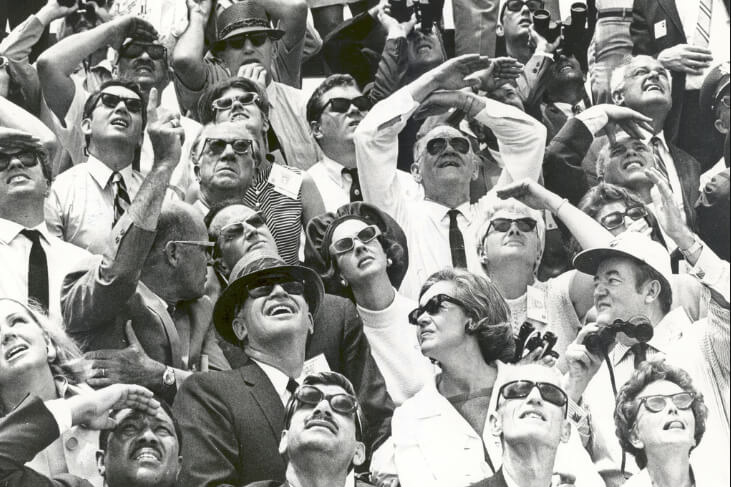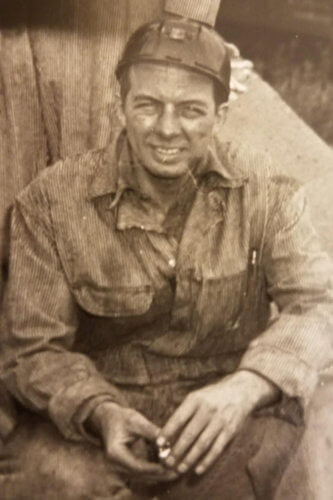On a recent flight, I found myself in an uncomfortable situation. Part of it was because I was in the middle seat, cramped, with no legroom. But, it was more of a discomfort that I fear many Americans have right now.
Not being able to sleep or read, I tried to make conversation with the passenger to my right. I would guess she was at least ten years my senior, and she had a book out entitled “How to Write a Dissertation.” Having written a dissertation and viewing the entire experience as a painful one, I was intrigued by what her story must be. She lit up when I asked her about her work. She then described how she had spent a career in education and academia, but was essentially forced to drop out of graduate school in the 1960s because of a professor who sexually harassed her. She told me about how she brought this issue to the same university recently and the institution is providing her with an opportunity for her to get her degree. It was a powerful story of how undaunted she remains and how committed she has continued to be to education. Given national headlines on the #MeToo movement, we started talking about this issue and engaged in a really fascinating conversation about her journey.
As the conversation turned from her experience as a victim of sexual harassment, the passenger to my left began to lean in and listen in. Pretty soon, he dived headlong into the conversation, and taking a contrary view, blamed the issues surrounding the #MeToo movement on the sexual revolution and cultural changes that took place in the 1960s. Soon, he was talking about the “Dark State” and the Federal Reserve. I am always up for a good conversation. However, I found myself literally stuck between two people unable to have a conversation. The man was somewhat aggressive and unwilling to listen to this woman’s experience. The woman disengaged and kept to herself and later thanked me for diverting the conversation and trying to moderate. She wondered aloud, “How are you able to even have that conversation?”
(I will answer the question, but let me digress….)
‘Completely different takes on the same exact event’
One thing I will always be grateful for was having grandparents who understood the value of education. They viewed it not only from the perspective of wanting to have gainfully employed grandchildren, but they also understood the need to raise a generation that was well informed. My grandfathers—Pops and Skipper—were about as different as any two men could be from a political perspective. Both were members of what journalist Tom Brokaw called the “Greatest Generation.” They survived the Great Depression through hard work, perseverance, and ingenuity.

In the mid-1930s, Skipper starred in a government film that extolled the virtues of the Agricultural Adjustment Act. During WWII, He was drafted and was on his way to Japan when Truman dropped the A-bomb. He then went to work for the National Institutes of Health, being a key player when the polio vaccine was rolled out. Then, in the late 1950s, he worked for NASA and eventually became Deputy Director—the top non-political appointee—during the Apollo Program. In fact, he sneaked me into his office for the Apollo 11 launch. (He has fantastic stories of hosting everyone from Eisenhower and LBJ to Spiro Agnew at Cape Canaveral.)

Pops paid for his engineering degree at Ohio State during the Great Depression. In between his classes, he would hitchhike to Detroit and buy Ford cars at deep discounts. Then, he would drive back and sell them to interested parties in Columbus. During WWII, his work managing coal mines in Pennsylvania and West Virginia made him essential to the war effort. (I think he struggled with not being allowed to enlist.) After the war, he ran coal mines in a way that garnered support and respect from the workers. He was a rare “suit” who would go into the mines. At one point, he had FBI protection, because he took on the influence of organized crime in labor unions.
When I was in high school, Skipper began to send me the Washington Post Weekly. It was collection of highlights of the news from each week with plenty of commentary. When Pops heard about this, he immediately ordered me a subscription to the National Review. Pops joked that he was worried I would turn into a communist if all I read was the Post, but I am actually not sure he was joking. Both periodicals fueled a deep interest in politics, leadership, and history. But, the unintended consequence of getting both of those publications at such a young age was that I was less aware of political bias. I had no reason, at that point in my life, not to trust either source. I would read completely different takes on the same exact event.
In the mix of this, I formed a relationship with one of the most impactful teachers I have ever had: Howard Zeskind. Mr. Zeskind was brilliant. Kids loved him, and he had this great easy-going style. He taught American history and scores of electives. But, the one I remember the best was “Debates in Modern Politics.” Every week, the class would take on an issue and debate it. This was in the 1980s, and if you lived through that era, you might remember that it was pretty polarized. President Reagan was ascendant, but the tensions and trauma of Vietnam and Watergate were still close. We debated everything from the Strategic Defense Initiative and intervention in Latin America, to the welfare state and Reagan’s tax policy. Mr. Zeskind would not allow us to choose what side we wanted to debate. It forced us to study a position and advocate for it in logical ways, even if we didn’t agree!
What enabled me to moderate a conversation between two people on an airplane with starkly different views was the gift that Pops, Skipper, and Mr. Zeskind gave me: the talent to study, understand, and analyze divergent perspectives. It is something that is so critical to being an engaged and productive member of the society. I have written before that as polarized as this political age is, we have experienced this before. “Fake news” was around at the beginning of the partisan age when the Jeffersonian Republicans would attack the Federalist Party in their own newspapers. And, of course, the Federalists responded in kind with various slanders and misrepresentations of truth. As a student and scholar of American history, it is always important to be skeptical of whatever one reads.
‘Rise above the noise’
Our job as students and citizens is to use our brains to rise above this noise. It’s not easy to do. In an age in which algorithms can determine what stories pop into our news feeds on social media and on our web browsers, it takes a bit of effort to force oneself to listen to different perspectives. I disagree with most of what I read, but I still am inspired and motivated by it.
At Colorado Academy, we work to contribute to the intellectual development of young people. It is an enormous responsibility. We want students with diverse perspectives and viewpoints. We want to promote critical conversation. We do not want to shield our students from real world issues. We want them to learn authentically.
Our role as educators and parents is to teach tolerance and diversity of thought, to expand beyond the comfort of surrounding ourselves with like-minded individuals, and to welcome and embrace the idea that what makes us individuals is that we all come from a variety of backgrounds, ideologies, and circumstances. This requires that educators make deliberate and careful choices about their curriculum. And it requires that we teach students to think for themselves as they learn to fashion their own viewpoints. First and foremost, they must know how to listen to the viewpoints of others, even if ultimately, they disagree.
New York Times op-ed writer journalist Brett Stephens delivered a talk last year called “The Dying Art of Disagreement,” lamenting the increasing polarization in our country and the decreasing willingness to listen to opposing viewpoints. He said disagreements are never based on a misunderstanding. “On the contrary,” Stephens said, real “disagreements arise from perfect comprehension; from having chewed over the ideas of your intellectual opponent so thoroughly that you can properly spit them out. In other words, to disagree well you must first understand well. You have to read deeply, listen carefully, watch closely. You need to grant your adversary moral respect; give him (or her) the intellectual benefit of doubt; have sympathy for his motives and participate empathically with his line of reasoning. And you need to allow for the possibility that you might yet be persuaded of what he has or she to say.”
Teachers like Mr. Zeskind modeled this type of learning. To be sure, he had his opinions. But, he helped his students come to terms with their own thinking through the Socratic method. He forced us to listen to each other and to different voices. This can lead to a certain amount of confusion and even internal tension as one works to arrive at some type of conclusion. The historian in me knows that time tends to change our perspective. We can look anew at events and understand them differently. The key thing is to keep one’s mind open to new understandings and ideas.
